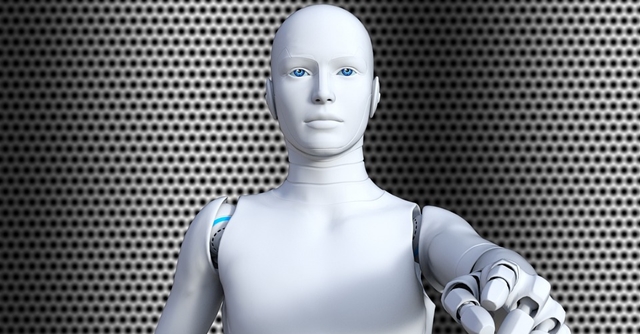
Noida-based Addverb to introduce humanoid robots for businesses in 2025


Noida-based robotics company, Addverb, on Tuesday announced its foray into humanoid robotics by 2025. The new humanoid robots will be an advanced Artificial Intelligence (AI) agent capable of processing vast volumes of multi-modal data from vision, audio, and touch inputs, and is targeted to diverse industries, the company said in a statement.
Addverb, which has operations across the US, Europe and Asia, will develop its first humanoid robot with Reliance, using Jio’s AI platform and 5G services. Reliance invested in Addverb in 2021. And the company deployed its advanced robotic solutions across Reliance’s businesses, including grocery, fashion, petrochemicals, and healthcare.
The humanoid robot will navigate complex environments, perform intricate tasks, make real-time decisions, and adapt to diverse workflows across industries—including warehouses, defence, and healthcare, Addverb said in a statement.

The robots will use GPU, energy-efficient actuators, and dual-arm capabilities, to execute complex tasks requiring bipedal mobility across multiple terrains. It will also integrate Visual and Language Action (VLA) technology, enabling full autonomy in dynamic settings, the statement added.
In July, Addverb introduced Trakr, India’s first quadruped, AI-powered robot with autonomous navigation, and modular payload that can traverse various terrains.
“Our foray into humanoid robotics is driven by our ambition to eliminate ‘3D’ jobs—those that are dull, dirty, and dangerous. This project focuses on integrated processing and decision-making capabilities, enabling the humanoid to perform complex tasks with human-like dexterity and strength,” said Sangeet Kumar, Co-Founder and CEO of Addverb.

This initiative will boost humanoid robot density in India and support global adoption of this technology. We are embarking on an exciting journey towards transformative progress in robotics, he added.
Last week, research firm Gartner said that the market will see more human-like mobile robotics technologies which will mature over the next 2-5 years. Industrial companies have almost four million single-function robots operating today. They already address labour shortages, reduce costs and increase efficiency. With the evolution of human-like robots that can fulfil various functions, businesses can increase the value these machines deliver, it said.
